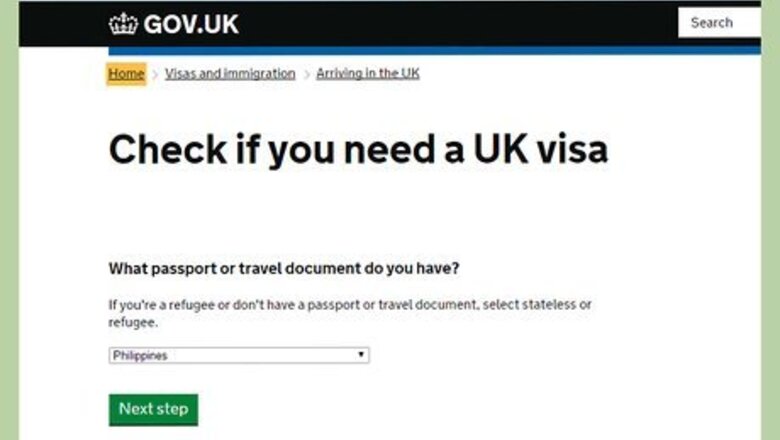
views
Finding a Way In
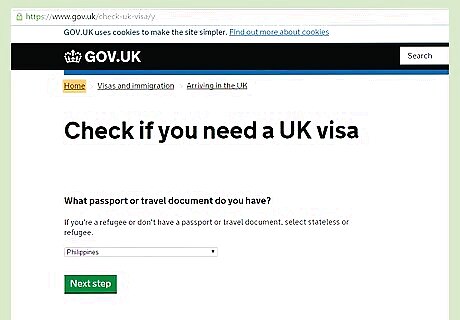
Learn about visas. The UK Government website has an easy online form that will tell you what type of visa you need. Check it out here. Most immigrants will need a visa of some kind, allowing them to live and possibly work in the UK for a certain amount of time. Once you know which type to apply for, get started at visa4uk.fco.gov.uk. It's best to allow several months for your visa to get approved. If you need more information, the rest of this section explains the immigration and travel requirements in detail. Otherwise, skip ahead to the next section. The United Kingdom is the state made up of England, Scotland, Wales, and Northern Ireland. You do not need a visa specific to England or any other jurisdiction of the UK.
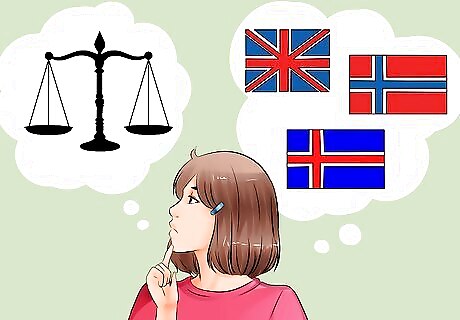
Know the rights of European citizens. If you are a citizen of any country in the European Economic Area (EEA), you have the right to live and work in the United Kingdom. This includes all countries in the European Union, plus Iceland, Lichtenstein, and Norway. Citizens of Switzerland also have this right. However, the referendum held on continuing EU membership on 23 June 2016, which resulted in the British electorate voting to leave the European Union (51.8% in favour) could lead to the EU freedom of movement rules being no longer valid in the next few years. All you need is a passport to prove your citizenship. While not required, you may also want to apply for a registration certificate. This may help you prove your rights when applying for various benefits. Family members of European citizens who are not themselves citizens must still apply for a visa. They can apply for permanent residency after the citizen family member has worked in the UK for five years.

Apply for UK jobs. Search at monster.co.uk, fish4.co.uk, reed.co.uk, or indeed.co.uk. If a UK company wants to hire you, you can apply for a visa. How long this lets you stay depends on your job: Tier 2 visas are available for high-demand fields, listed in detail here. You may also have a chance if you are transferring within a multinational company, or if your employer can demonstrate that your job cannot be filled by a local worker. These usually allow three years of residency, extendable to six. Tier 5 visas are temporary work permits good for 6 months to 2 years. If you are not qualified for a Tier 2 position, look for work in a charity organization, or work as an athlete, entertainer, or religious worker. Tier 1 visas are only available to people starting a business, making multimillion pound investments, or recognized as leaders in their field. They're typically good for five years and can be extended to ten.

Enroll as a student at a UK institution. You must be able to speak the English language and have enough money to support yourself. You can stay until you complete the course, plus a few months. You will only be able to work in jobs required by your coursework.

Apply for other visas. There are a few other ways to enter the UK for more than a short tourist visit. These require special circumstances, most commonly the following: Family (variable length and work status): Available if joining a spouse, fiancé(e), partner of two+ years, or child. Also available if you need to be cared for by a family member in the UK. UK ancestry visa (5 years, can work): Must be a Commonwealth citizen with a grandparent born in the UK. Tier 5 Youth Mobility (2 years, can work): citizen of certain countries, between 18 and 30. Visitor visa (usually 6 months, can't work): A last resort. If you have the money to support yourself while waiting, you can arrive on a visitor visa, then try to get hired and apply for a work permit. The odds are slim, but you get a holiday if it doesn't work out.
Before You Leave

Find a place to live. Look for a hostel or hotel you can stay in temporarily when you arrive, and for potential living situations. You may need to wait until you arrive to sign a contract, but start looking a few weeks in advance for rentals, or a few months if buying. Try sites such as Gumtree, RightMove, Zoopla, or RoomMatesUK. Make sure you know how the property search may differ from your country: London property prices are very expensive, averaging £1,900/month for a two-bedroom flat (apartment). Consider other cities, or country towns within an hour of a city. Look closely — the listed rental price may be either weekly or monthly. Feel free to negotiate over the price. If you plan to buy a house, hire a real estate solicitor in the UK first.
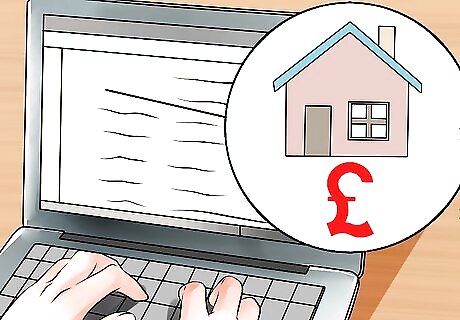
Check for housing-related fees. Before you sign a rental contract, ask which additional fees you will be paying. The cost varies greatly depending on your region and property, but here are some estimates: Utilities: Expect to pay about £120 a month for water and electricity, plus £70 for heating. This is the average cost over a year; heating costs are much higher during winter, and lower during the summer months. Council tax: at least £100 per month, but could potentially be higher. Television licence: In order to watch live TV channels (even online), you need to pay a colour TV licence fee of £145.50 each year. This can be paid in a full lump sum, or in smaller amounts throughout the year. Though rarer nowadays, a licence for a black and white TV costs £49. It is a criminal offence to view TV programming without paying the licence fee, and you could be fined up to £1,000. Television, mobile, and Internet plans vary widely. This is in addition to the licence fee.

Practice your English. If English is not your native language, start studying before you arrive. Life will be much easier if you can speak, read, and write in English. If you come from the United States, learn British English, as American English and British English have different words for many things. For example, the hood of a car is a "bonnet". It may also be a requirement for some jobs, or for applying to become a permanent resident.

Plan to move your pet. First, check here to find out whether your country is "listed" or "unlisted," and for special requirements by country and species. For cats, dogs, and ferrets coming from most areas, you need the following: microchip rabies vaccination (21+ days in advance) EU pet passport or third country veterinary certificate (a veterinarian can help with this) Dogs only: tapeworm treatment Unlisted countries only: Blood test (3+ months in advance, 30 days+ after rabies vaccine) Approved travel route and transport agency, listed here. If traveling from a hot climate, you may need to wait for cooler weather.
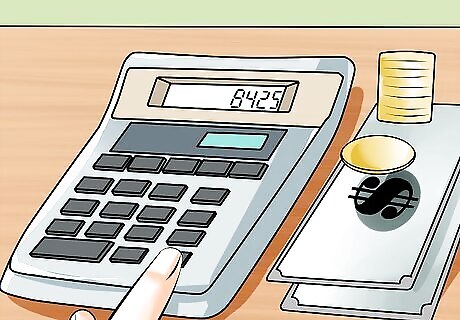
Budget your expenses. Cost of living varies depending on your location. Use expatistan.com to compare your current location to your new home. If you stay in the UK more than 183 days, you will owe taxes on your income. Track how much you normally spend a month and compare it to how much money you make so you can plan for your fixed and variable expenses.
After You Arrive

Figure out transportation. Public transportation is reliable in London and most other large cities, while parking and petrol prices are challenging. If you do decide to drive, click here to find out whether you can use your current licence. Rail travel is common for longer journeys, with price and speed ranging from convenient to absurd depending on the route. If you plan on traveling and are aged over 60 or under-25, buy a discount railcard. In London, buy an Oyster Card from an Underground (tube) station. These give discounted prices on tube, bus, and city rail fares.

Open a new bank account. A bank account and associated debit/credit card are usually free. A few of the largest English banks are: Lloyds, HSBC, Barclay's, and NatWest. Ask your current bank whether it has a "sister bank" program you can use while in the UK. You can try opening a bank account from overseas, but you may need to provide a UK address.

Apply for documents. There are a couple useful documents a visitor to the UK should have: National Insurance Number. This is used for tax purposes, and required for employment and to claim any benefits. Call Jobcentre at 0345 600 0643 to apply. Passport photo (with UK specifications). These can be taken at photo booths for £6 or less.
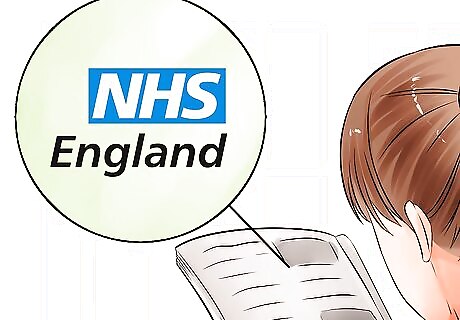
Learn about the UK healthcare system. Emergency medical care is free at-point-of-use for all visitors. Hospital visits are free to most visitors, including anyone who paid a one-time healthcare surcharge when applying. For other health-related issues, it's up to the doctor whether to charge you or not. You may want to ask several doctors in your area about prices before you choose one.

You may want to also learn some of the differences between English culture and the culture you came from so you don't get confused! Although this may seem like something you can just get used to, it's good to figure out the English version of some words, or you might end up saying the wrong word and getting in trouble! For example: in England, "fanny" is much more vulgar and socially unacceptable word in England than it is in the USA; as it means something else.















Comments
0 comment